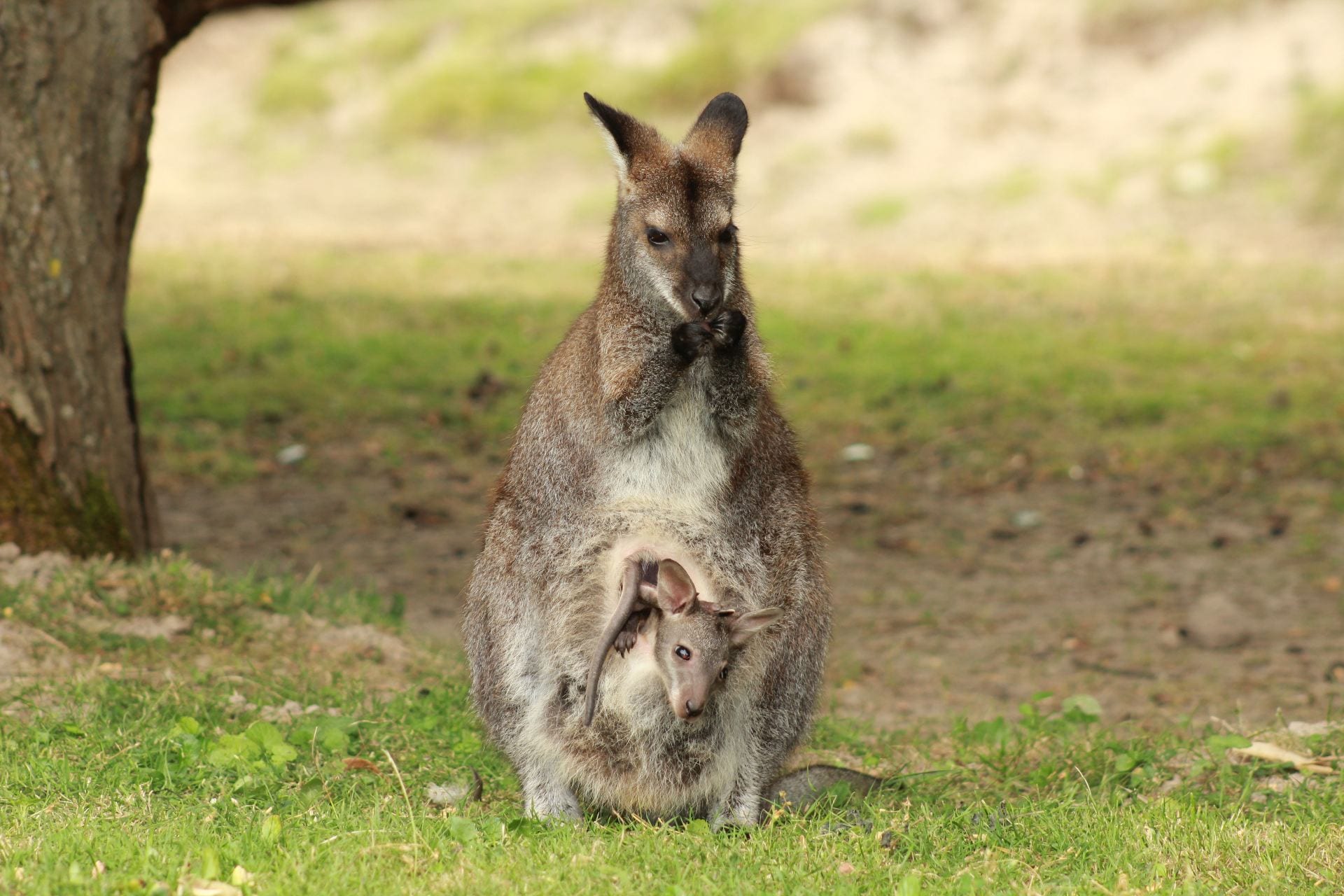On a November weekend, as I was driving on the campus of the University of New England, I stopped the car to look at an echidna. As soon as I got out, two students in lab coats ran over and said that they had been looking out their lab window for months hoping to see that echidna. Startled by the attention, the echidna did not do much, but it was still fascinating.
On this past Christmas Eve, as I walked along a beach at Shoal Bay, north of Newcastle, I spied three dolphins swimming 15 metres away. I felt delighted, and others around me had the same reaction.
On New Year’s Eve, I saw a mother kangaroo and her grown-up joey lounging outside my office building at the University. I took a photo as soon as possible and put it on Facebook. My Facebook pals loved the image.
I feel joy when I see wild animals. I bet you do too.
Some people pay big money for chances to see wild animals. Think of African safaris. Bird watching forays into wetlands. Snorkeling and scuba diving. Whale-watching cruises.
Seeing animals in zoos can be fun, but it does not match the thrill of finding them in natural settings.
What makes finding wild animals in nature so appealing?
We like to see animals living free. We would rather see wild horses in open spaces than horses in a corral. Perhaps we envy the freedom of wild animals.
Rarity is a factor. We enjoy seeing rare birds more than seeing magpies.
Surprise can play a role in positive reactions to wild animals. Once, on a Saturday evening, I was sitting in a car, when I saw a large kangaroo hopping fast down the street in the direction of the pubs. I wondered whether it planned to meet its mates. Some animals are beautiful. I feel happy whenever I see a rosella. I would like to see a tiger in the wild too, if I could be sure to survive the experience.
Some animals are cute. I often see parent ducks with a bevy of ducklings at the university. I particularly like seeing them cross the street on the striped lines for pedestrians.
Many animals are entertaining. Monkeys and squirrels are good examples. Their antics are worth paying to see.
Many beasts are amazing in one way or another. They fly, run, climb, swim, dig, or leap like no human ever.
Seeing wild animals in nature may give a boost to our mental health. The animals somehow seem tough and content. We may like the model they set.
Animals connect us with nature. We like their natural manner and their seemingly simple lifestyle.
What animal would you like to see in the wild? A platypus? A gorilla?




0 Comments